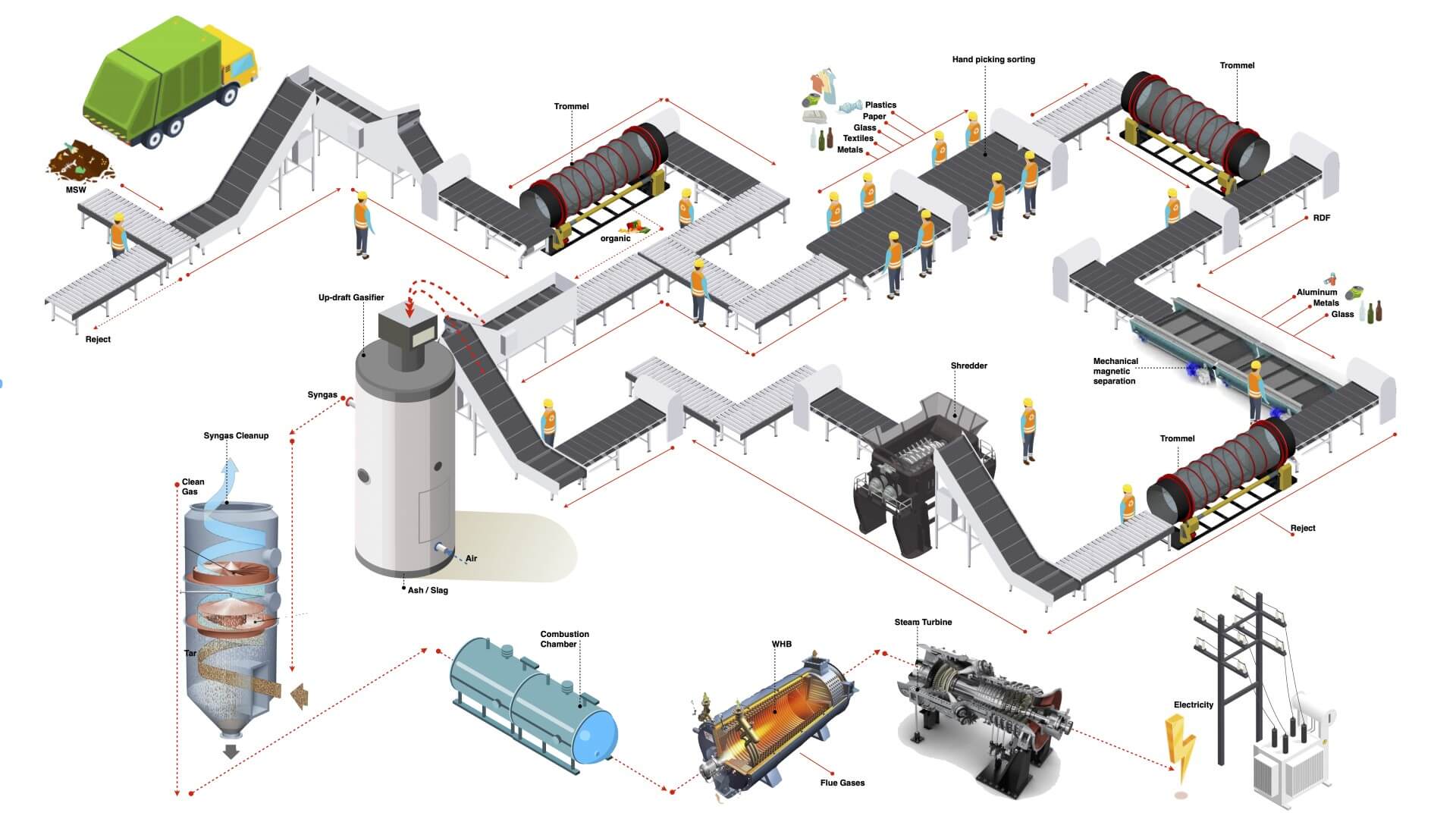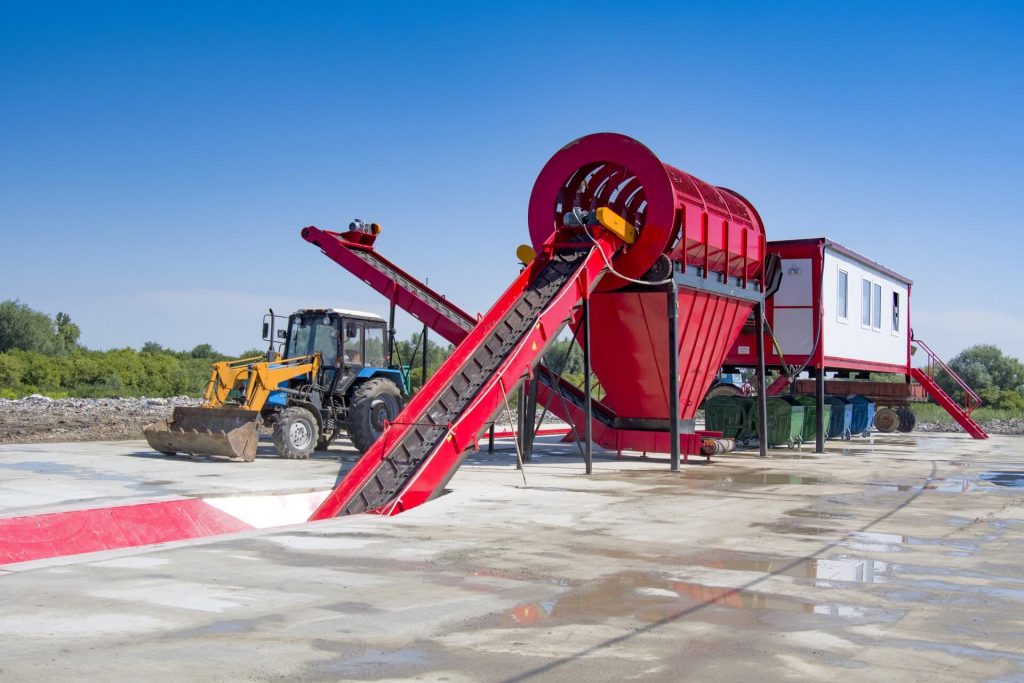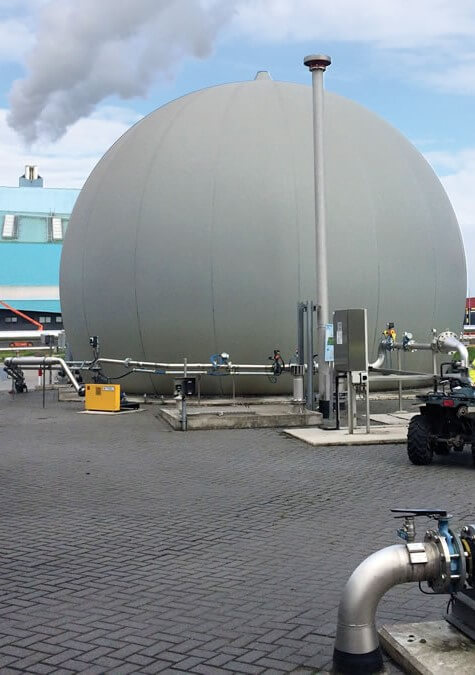Waste Management
NEW INNOVATIVE TREATMENT SOLUTIONS
The industry is the backbone of life and is responsible for providing a large part of the daily needs. However, with the increase in industrial progress, many problems have emerged, on top of which is the waste produced from it. At GP TECH, we are working to provide what is needed to solve this problem. In partnership with international companies, we have developed the appropriate solution. The key here must be environmentally friendly, and it must also have equivalent economic feasibility.
Industrial Waste Management
GPTECH has the proven experience, expertise and technology to effectively and cost-efficiently address the broad variety of waste streams emitted from industrial plants guaranteeing the safe disposal of all waste, their maximum recovery reducing costs and environmental footprints.
GPTECH provides a broad portfolio of industrial waste management services and expertise to companies in many types of industries, developing a true industrial ecology system.
PRESSURE ON RESOURCES, INCREASINGLY FAVORABLE REGULATIONS AND THE MOVEMENT OF SOCIETY TOWARDS A CIRCULAR, SHARING AND FUNCTIONAL ECONOMY MAKE THIS A KEY ISSUE ON INDUSTRIAL CUSTOMERS. GPTECH HAS SET ITSELF THE AIM OF STRENGTHENING ITS LEADERSHIP IN THIS AREA BY DEPLOYING EXISTING TECHNOLOGIES, INNOVATING AND POSITIONING ITSELF AS A STAKEHOLDER THAT CREATES SHARED VALUE.
Activities will revolve around the implementation of a waste management plan that will cover the following activities, all typically managed at the point of collection:
→ Separating
→ sorting / labelling|
→ profiling
→ packaging
→ classifying
→ inventory
→ storage
→ logistics management
→ valorization
→ recycle, reuse
→ reporting and traceability
Benefits :
( Delivered Efficiency – Improved Yield – Secured License to Operate )

Hazardous Waste Management
Solvents, which are generally toxic liquid substances, fall into the category of hazardous waste. Widely present in products used in pharmaceutical, automotive, cosmetic, coating and cleaning activities, they often present a significant danger to people and the environment. In this regard, handling and recycling them requires a number of precautions.
With more than a thousand solvents in existence, there are many different types of use (degreasers, solvents, strippers, cleaners, etc.), but also the associated risks. They can be inhaled, swallowed or enter the body through the skin, pollute the environment, contribute to the greenhouse effect or cause explosions. Solvents are dangerous therefore, but nevertheless valuable, substances. Depending on their properties, they can be recovered and regenerated and become competitive secondary raw materials.
By regenerating solvents, GPTECH can supply its customers with low-cost, high-quality secondary raw materials.
GPTECH guarantees the quality and safety of its expertise in solvent recovery and regeneration:
→ Provision of containers adapted to requirements.
→ Removal by pumping or collection of contaminated solvents in conditioned tanks and transport with built in traceability.
→ Sample analysis.
→ Treatment with, in particular, thin-film evaporators for the separation and recovery of solids and equipment for the distillation and separation of the solvent and impurities.
→ Recycling or regeneration.
→ Return to manufacturers for reuse or sale to third parties.
Benefits :
– Optimized cost.
– The supply of a cheaper high quality secondary raw material equal to the virgin material.
– Regulatory compliance.

Renewable energy from landfill
Landfills produce large amounts of biogas.
This biogas, the result of the digestion of organic waste in the absence of oxygen (anaerobic), is made up of methane (65-70%) and CO2. It is a source of renewable energy that can be captured and recovered in the form of electricity, heat for district heating networks or as biofuel. Capturing biogas from landfill sites requires an efficient collection and pre-treatment system. It usually consists of a network for collecting and recovering methane and a power generation unit made up of gas turbine generators of various capacities depending on the size of the site.
GPTECH can produce approximately 1.2 million megawatt hours of electricity from more than 14 million metric tons of landfill waste annually.

